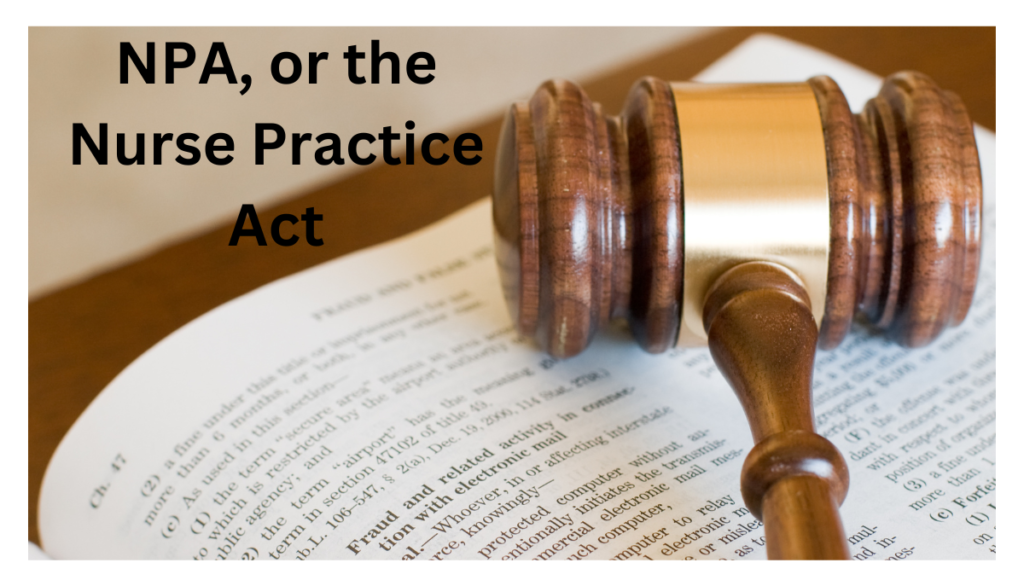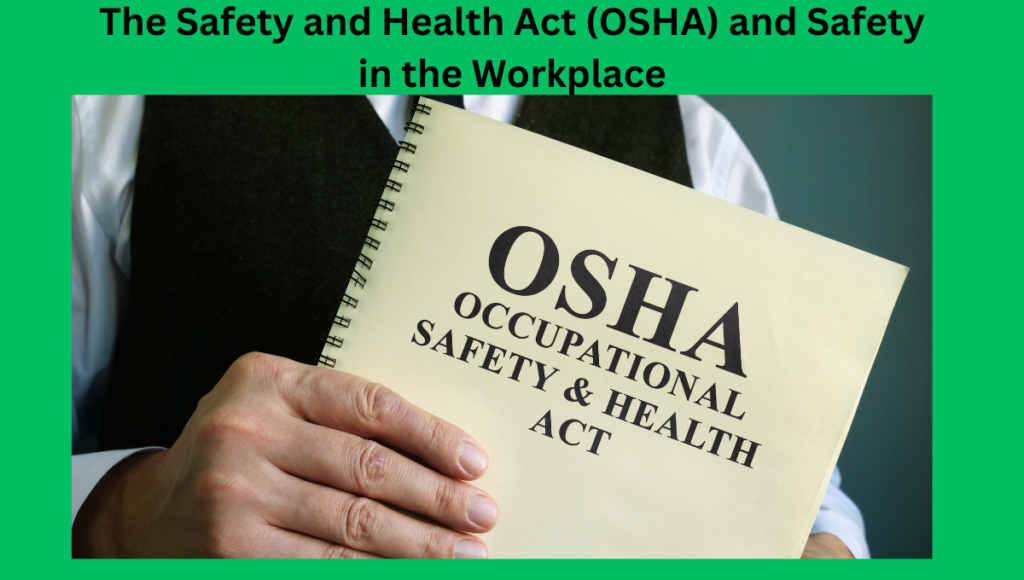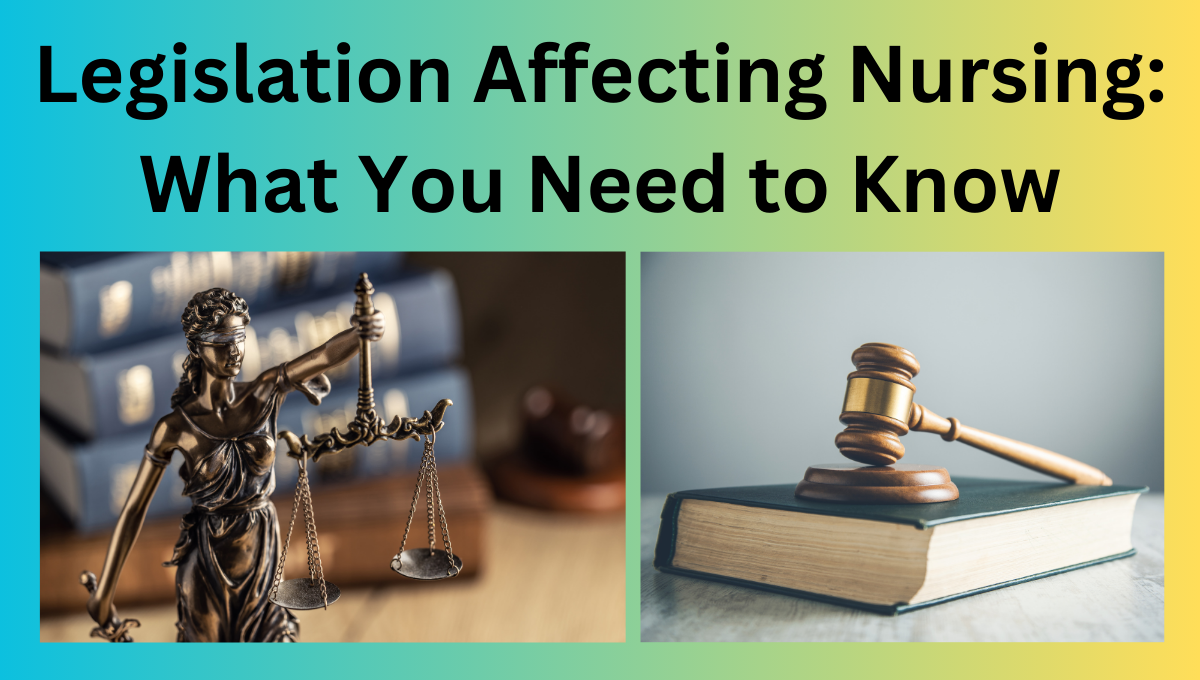Legislation Affecting Nursing: What You Need to Know
Overview:
Greetings
The Significance of Nursing Legislation
Important Rules and Legislation Impacting Nursing
NPA, or the Nurse Practice Act
Nursing’s Reaction to the Affordable Care Act (ACA) and the Health Insurance Portability and Accountability Act (HIPAA)
The Safety and Health Act (OSHA) and Safety in the Workplace
State vs. Federal Nursing Certification and Licensing Regulations Qualifications for Nurses
Rights and Protections for Nurses at Work
Laws Concerning Safe Staffing, Working Hours, and Overtime Rules and regulations
Whistleblower Safety Measures
Future Trends in Nursing Law and the Role of Nurses in Advocacy and Policy Making
How Nurses Can Keep Up with Legal Developments
Final FAQs
Greetings
Within the healthcare sector, one of the most regulated occupations is nursing. Laws and regulations guarantee workplace safety, safeguard patient rights, and influence nursing practice. Knowing nursing regulations is essential to giving patients safe and compliant care, regardless of experience level.
The main laws that impact nursing will be broken down in this article, along with their significance and ways that nurses can keep up with changes to the law.
The Significance of Nursing Legislation
Laws pertaining to nursing have several functions, such as:
Preserving the rights and safety of patients
Specifying nurses’ areas of practice
Ensuring equitable working conditions
Controlling nursing certification and licensure
Keeping ethical transgressions and malpractice at bay
Inadequate legal understanding puts nurses in danger of breaking rules, which can result in fines, termination, or even legal action. For this reason, it’s critical to stay up to date on nursing legislation.
Important Rules and Legislation Impacting Nursing
The practice of nursing is directly impacted by several laws. The following are a few of the most significant:

NPA, or the Nurse Practice Act
Nurse Practice Acts (NPAs) vary by state in the United States and include:
outlines the legal parameters for nursing practice.
specifies the conditions for certification and licensure.
Establishes guidelines for moral behavior
outlines the sanctions for infractions.
In each state, nursing practice is governed by State Boards of Nursing (BONs), which enforce the NPA. Nurses need to be aware of the NPA relevant to their state in order to maintain compliance.
How the Affordable Care Act (ACA) Affects Nursing
To increase access to and affordability of healthcare, the Affordable Care Act (ACA) was passed in 2010. It has significantly influenced nursing through:
Increasing the primary care function of nurse practitioners (NPs)
More patients mean a greater need for nurses.
Insisting on patient education and prevention
Establishing new criteria for quality of care
Since nurses are crucial to the implementation of ACA rules, it is critical that they comprehend how the law impacts their duties.
Portability and Accountability of Health Insurance Act (HIPAA)
HIPAA (Health Insurance Portability and Accountability Act) safeguards patient privacy in the following ways:
Limiting how personal health information (PHI) is accessed
Creating regulations for data security
Assessing and punishing HIPAA violations
When using electronic health systems, talking about medical conditions, and handling patient records, nurses must abide by HIPAA regulations. Violations of HIPAA can have serious legal repercussions.

The Safety and Health Act (OSHA) and Safety in the Workplace
Healthcare settings must adhere to workplace safety regulations set forth by the Occupational Safety and Health Act (OSHA). OSHA’s primary safeguards for nurses include:
Managing hazardous materials safely
Rules for avoiding violence at work
Infectious illness prevention (e.g., COVID-19 regulations)
Minimum standards for appropriate personal protective equipment (PPE)
OSHA regulations can help nurses protect their personal health and lessen workplace dangers.
Federal vs. State Nursing Regulations
Both state and federal regulations apply to the nursing profession. Specific license and practice regulations are determined by state legislation, although federal laws establish general standards.
As an illustration:
Nationally, federal laws (such as HIPAA) are applicable.
States have different laws (such as the Nurse Practice Act).
To practice lawfully, nurses must thus remain up to date on both state and federal regulations.

Nurse Certification and Licensing Requirements
Nurses need to get a license from the state board of nursing in order to practice lawfully. Typical requirements consist of:
Completion of a recognized nursing program
Becoming a registered nurse by passing the NCLEX-RN
completing credits for continuing education in order to renew
Some nurses seek further certifications in areas such as pediatrics, cancer, or critical care in order to broaden their scope of practice and employment prospects.
Rights and Protections for Nurses at Work
Although nurses encounter particular difficulties at work, there are a number of regulations that offer significant protections:
Laws pertaining to safe staffing
Safe staffing rules are in place in many states and include:
Limit each nurse’s patient load.
Cut down on medical mistakes and nursing burnout
Enhance patient results
For instance, California has stringent regulations on the nurse-to-patient ratio in order to protect patients.
Regulations Regarding Overtime and Working Hours
Laws govern the lengthy hours that nurses frequently work:
Policies requiring mandatory overtime
Break needs for shifts
Fair remuneration for overtime
Being aware of these rights helps nurses avoid being underpaid or overworked.
Whistleblower Safety Measures
Whistleblower laws protect nurses who disclose malpractice or dangerous situations. These regulations stop:
Employer reprisals
Termination of employment due to failure to report infractions
At-work harassment
For patient safety, nurses should be confident in their legal safeguards and speak out against harmful practices.
The Advocacy and Policy Role of Nurses Producing
Nurses have a significant influence on healthcare legislation. One way they can advocate is by
becoming a member of nursing associations (ANA, NNU, etc.)
Taking part in talks about policy
Speaking with legislators about health care concerns
Supporting nursing rights through voting for policy
Nurses who remain involved can have an impact on laws that affect their field.
Nursing Law: Obstacles and Upcoming Developments
Since the nursing profession is always changing, potential future legal issues could include:
Telehealth legislation expansion for remote patient treatment
Making policy adjustments to address the shortage of nurses
Revising HIPAA rules pertaining to electronic health records
Preventing violence against nurses in the workplace
Nurses can be ready for changes in their field by keeping up with these trends.
How Nurses Can Keep Up with Legal Developments
To remain up to date with nursing laws, nurses must:
Keep up with State Boards of Nursing announcements.
Sign up for nursing newsletters and journals.
Attend classes for continuous education.
Join advocacy groups for nurses.
Being informed aids nurses in navigating the legal intricacies that arise in their line of work. After all, knowledge is power.
In conclusion,
Patient care, workplace safety, and professional integrity all depend on nursing laws. To guarantee that they practice lawfully and ethically, nurses should be aware of important regulations such as the Nurse Practice Act, HIPAA, OSHA, and ACA.
In a constantly evolving healthcare landscape, nurses may better defend themselves and their patients by being involved in policy changes, standing out for nursing rights, and staying current on legal developments.
FAQ 1. What occurs when a nurse transgresses the Nurse Practice Act?
Penalties, license suspension, or even revocation are possible consequences of breaking the NPA.
- How does HIPAA impact the day-to-day duties of nurses?
In accordance with HIPAA, nurses must safeguard patient privacy, refrain from disclosing private information, and handle patient data securely. - Does reporting hazardous conditions give nurses legal protection?
Whistleblower laws do, in fact, shield nurses from reprisals for reporting unethical or safety-related activities. - What impact may nurses have on healthcare laws?
To promote improved healthcare legislation, nurses can interact with legislators, participate in policy discussions, and join advocacy organizations. - What makes keeping up on nursing laws crucial?
Keeping up with the latest legislative changes guarantees that nurses follow the law, keep out of trouble, and give the best care possible to their patients.


3 thoughts on “Legislation Affecting Nursing: What You Need to Know”